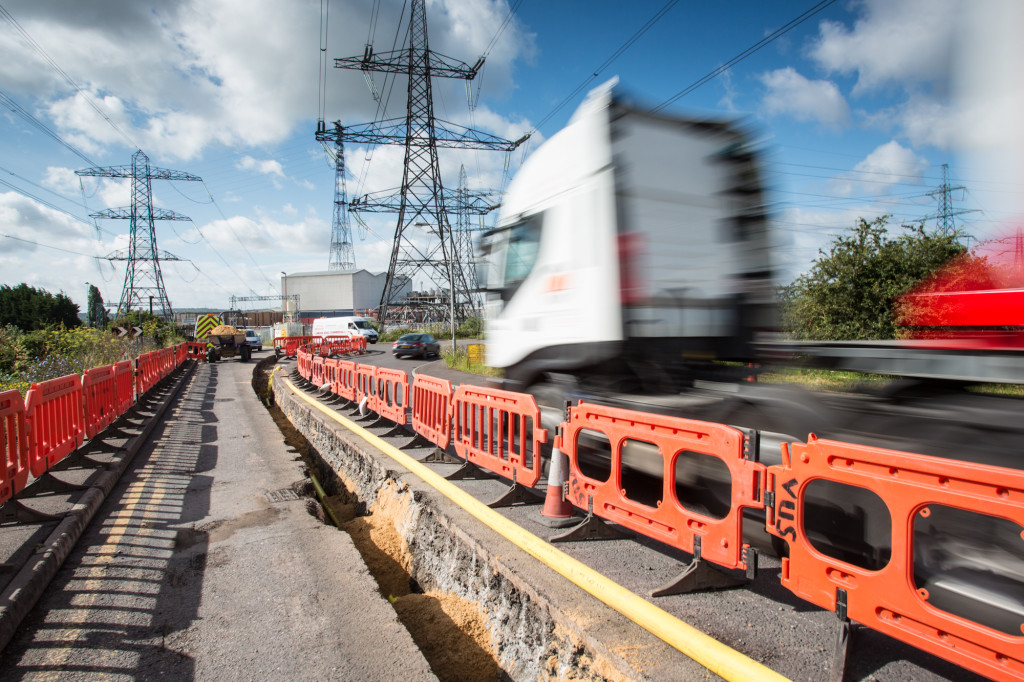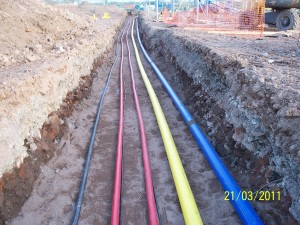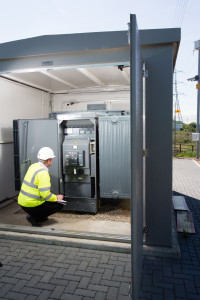Features - Business
The right price for the job

When contracting services, you tend to find you get what you pay for, and procuring services from an Independent Connections Provider (ICP) for electricity, gas and water connections is no different. There can be significant risks associated with opting for companies whose quotations are significantly below the market rate, and Paul Beck of Independent Connections Provider Matrix Networks says these companies should be treated with caution.

Paul Beck, Sales Director, Matrix Networks
“There’s always a right price for a job and any company which promotes itself as a professional organisation must make a profit in order to sustain the levels of service demanded and expected from its clients. Of course, how each provider goes about delivering their services and USPs is individual to them, but ultimately, you’d expect them all to offer a similar price for a given job. Those who claim to offer the same service for a much lower price still have to make a profit to run their business and so the costs must be passed on in other ways such as future variations, or worse still by cutting corners – and, in some cases, can be a sign of desperation.
“To explain why this is such an issue for utility infrastructure installations, I should probably start by providing a little background about how the industry works. When a new development is in the planning stages, the design, installation and connection of utilities (gas, electricity and water), need to be arranged. Until a few years ago developers and contractors had no choice but to go to the Distribution Network Operator (DNO) and there was only one price for services installed. But more recently, it’s been possible to engage an Independent Connections Provider (ICP) to carry out contestable elements of the work instead. This usually includes the design, materials procurement, trenching or cabling and the installation and commissioning of substations. Pretty much everything, including the final connection. In addition, the ICP will recommend the new network should be adopted by an Independent Distribution Network Operator (IDNO), rather than a DNO, allowing flexibility within the design as well as with significant commercial and financial benefits.
“While DNOs, ICPs and IDNOs have the same OFGEM obligations, there are still a number of operators in the industry who ‘play the game’ through the procurement process in order to tender a cheaper quote – which can often mean they make promises which they may well be unable to deliver. When we quote for a job, We don’t overcharge, but we do quote a rate which reflects our experience and our commitment to delivering a contract to meet and exceed our clients’ expectations.
“Other, less experienced operators, who are perhaps trying to open up new avenues for their business, may be quoting low, undercutting their more experienced peers, yet planning to deliver the bare minimum. Or they may be shifting the true cost of their works into other jobs they’re quoting for, such as groundworks or drainage. The resulting problems of this are twofold: firstly, their inability to deliver can have an adverse effect on the reputation of credible ICPs and IDNOs across the industry and secondly, they’re presenting an extremely risky proposition to their clients.

“Unfortunately, this kind of quotation is common, but if a developer or contractor has had this kind of experience with ICPs, then going back to the DNO isn’t the answer. Finding a professional ICP which can provide a full multi-utility solution at a fair price, however, is. In our case we work with a large number of significant developers and contractors with whom we’ve established long-term, trusted relationships. We also don’t try to be something we’re not. In our case we specialise in industrial and commercial electric, gas and water connections and we focus on ensuring our customers get the very best from us. We don’t dilute that quality by chasing other types of connections (individual connections to new housing developments for example), or by stepping into other areas of the supply chain such as metering or internal cabling.
“I fully appreciate how important the bottom line is when managing a development, but when projects are being quoted for, developers need to look beyond the figure provided. Our business is built on reputation and we prefer to work with companies that have a similar philosophy. When going through the quotation process with a new opportunity, I and my team always ask the client what their motivation is. If the answer is they want a job delivered for the cheapest possible price, then the chances are they’ll end up paying a higher price for it by completion. I also ask them what knowledge they ask for from the companies they’re buying from. Do they have personal experience of them delivering this nature of contract efficiently, to budget and on time, with a good working partnership and excellent communication? Or can they at least gain credible references from their own peers? Essentially we want to be sure we’re working towards a potential long-term relationship and that the value and expertise we provide is recognised as part of the procurement process.
“Companies like ours are heavily focused on ensuring our customers receive the highest levels of service and communication – and maintaining it through the lifetime of a project. For example, at the East Midlands Gateway Logistics Park at Junction 24 of the M1 we had to excavate 12.5km to the nearest DNO connection point. This is a substantial distance but along with providing our client with a fixed price and agreed timescale for completing the project, we took on the risk and responsibility of gaining permissions for excavation from all the statutory bodies, three local authorities and many private landowners along the route, and we delivered.
“Then at the Amazon Fulfilment Centre in Tilbury, we had an unusual request to design a bespoke 33kV Primary Substation which their own authorised personnel could access. They also wanted us to deliver an 18-month programme in ten months. We delivered on both requests, completing our works in just nine months.

“Too regularly I hear stories from developers, local authorities, and main contractors who have had poor experiences with ICPs. However, each and every time when I’ve challenged them on it, the procurement process hasn’t been focused on the right criteria. Sometimes it can be as simple as the wrong instruction to save money to an inexperienced Quantity Surveyor and the consequential result can be both costly and detrimental to the programme.
“So, my questions to the supply chain are: What process do you currently have in place to ensure you have both cost and programme certainty? Are your expectations high enough in terms of how an ICP should perform and communicate? What active steps have you taken to ensure you develop a long-lasting partnership with a credible and professional ICP? And my final question is, if you haven’t prioritised developing a long-term relationship with an ICP provider yet, why on earth not?”
If you would like to read more articles like this then please click here.
Related Articles
More Features
- UK construction costs set to rise by up to 3.8% in 2024
29 Feb 24
Construction costs in the UK are predicted to rise by 3 – 3.8% this year,
- A year of procurement, politics and productivity
24 Jan 24
With 2024 shaping up to have a great deal of changes through political, economic and
- 2024 Construction predictions
8 Jan 24
As we move in to 2024, what areas are expected to drive further change and






